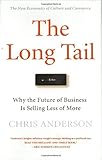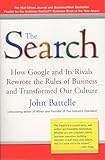This morning I finished reading former US President Jimmy Carter’s book by the name “Palestine: Peace Not Apartheid“. I’ve been wanting to read this book ever since it was published, I found it in Tunisia in the Al Kitab bookstore but it was too expensive, so I posptponed and bought it from Prime Megastore on my last trip to Jordan.
In this book, Jimmy Carter tackles the Middle East crisis and the question of Israel’s peace with its neighbors–in particular, how Israeli sovereignty and security can coexist permanently and peacefully with Palestinian nationhood.
It is a comprehensive and well-informed chronicle documenting the history and events of the Israeli/Palestinian crisis since its beginning to our present times from an insider who was the architect of the 1978 Camp David Accords between Israel and Egypt, and who has closely followed and been part of the events for decades.
I personally think that Jimmy Carter was as unbiased as an ex-American President could ever be in this book, trying not to take sides and to document the events as he witnessed them as objectively as possible.
It’s true that I did feel, at certain points, that he was being a bit soft on the Israeli side, but overall I think he was very honest and frank, and I respected that.
Weirdly (or naturally in these times), he was attacked because of this book and accused of assigning ultimate blame to Israel, being one-sided, …etc, etc, etc.
But then again we all know that’s what anyone gets for saying the slightest thing about Israel, even if it’s true and said in a nice and excusing way like Carter did in this book.
Again, personally, I think the book is unbiased, and if it is then slightly towards the Israeli side not against them.
I think everyone who is interested in the Middle East crisis should read this book for an objective and comprehensive view of the conflict, the events revolving around it, the different proposals for peace and more.
Personally, even though I’ve followed the conflict for years and know a lot about it, mainly because of studying its history at school and living in Jordan for years right next to the center of the storm; I came away from the book with a clearer view of it all, and a better understanding of the several peace proposals, agreements and UN resolutions related to this conflict.










